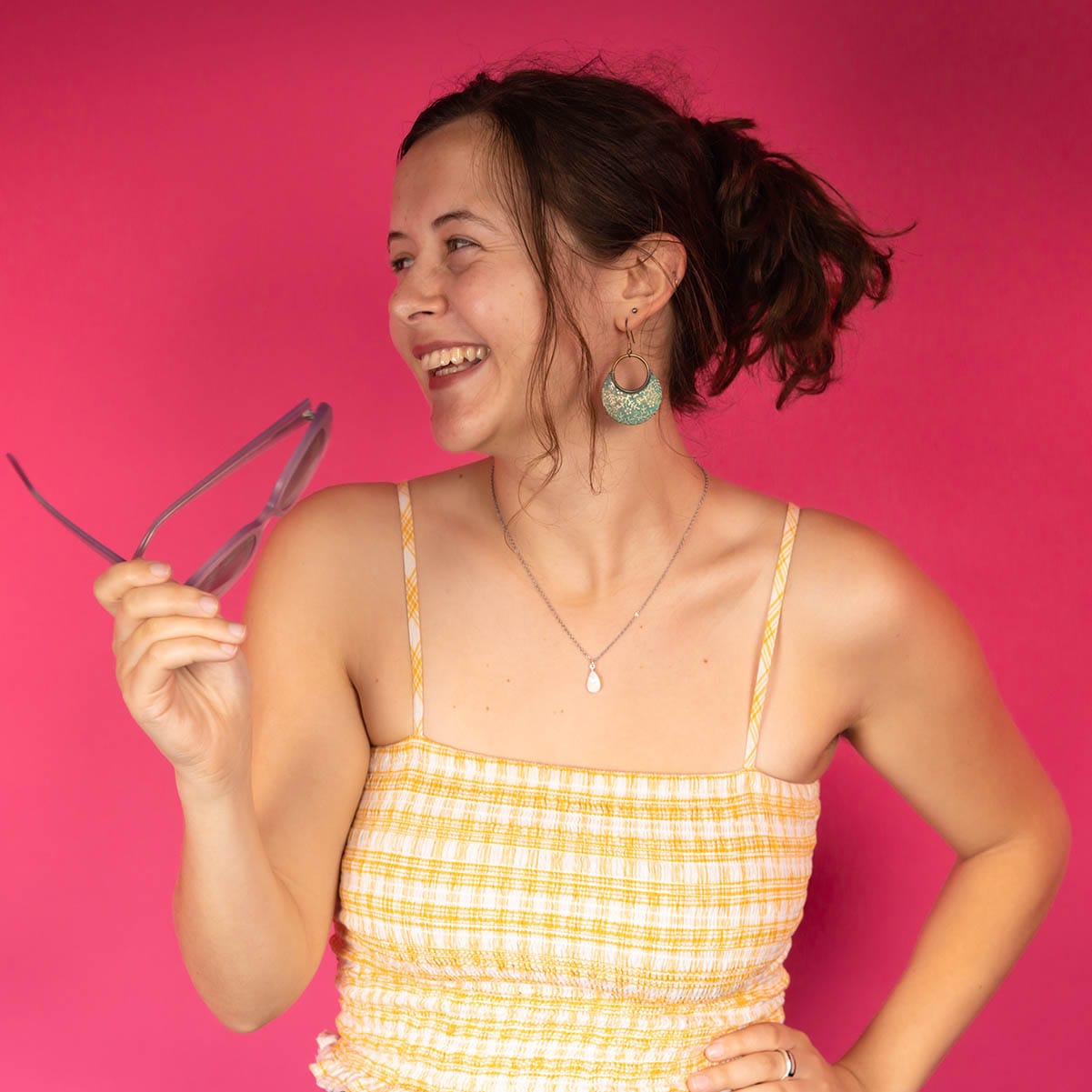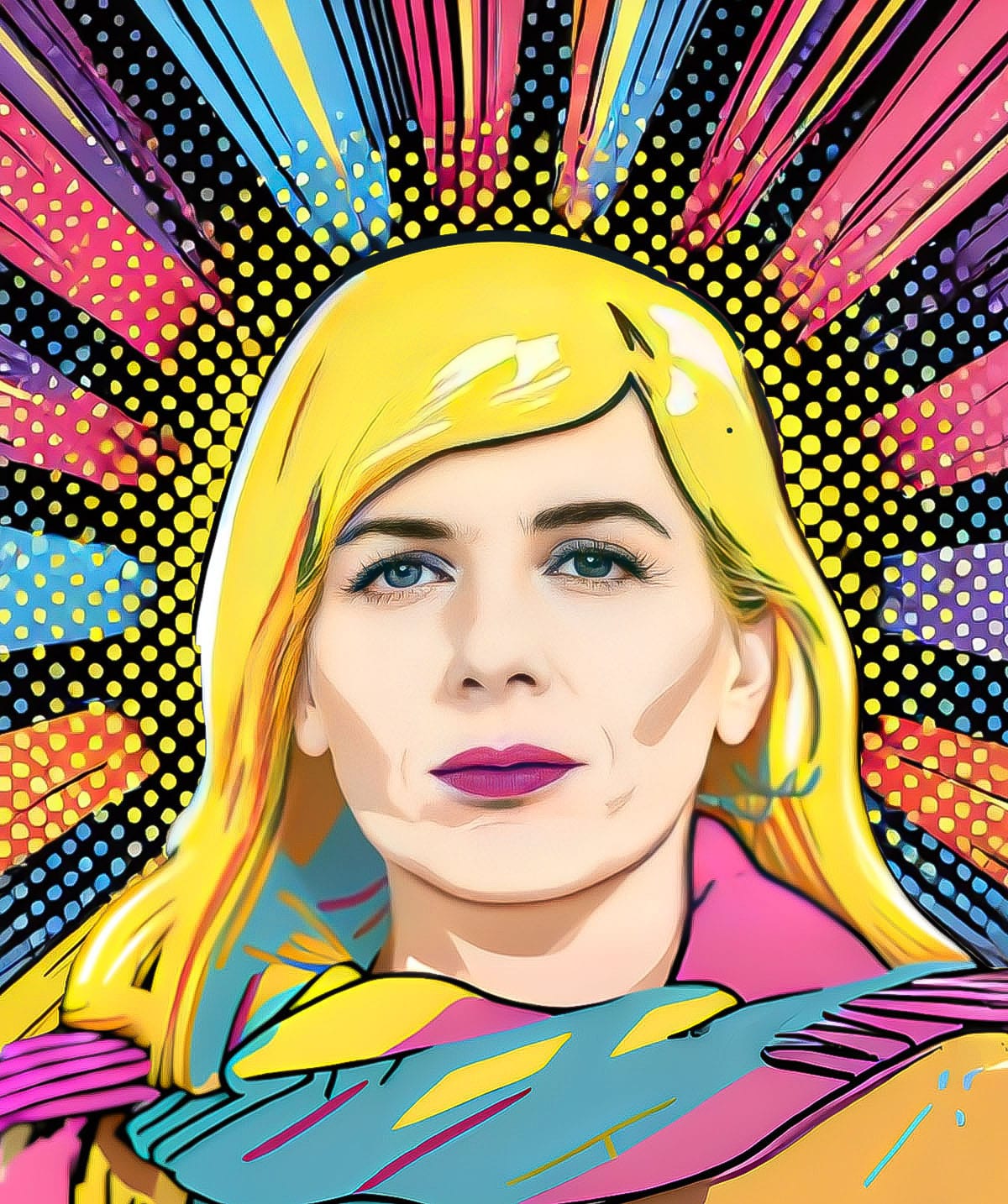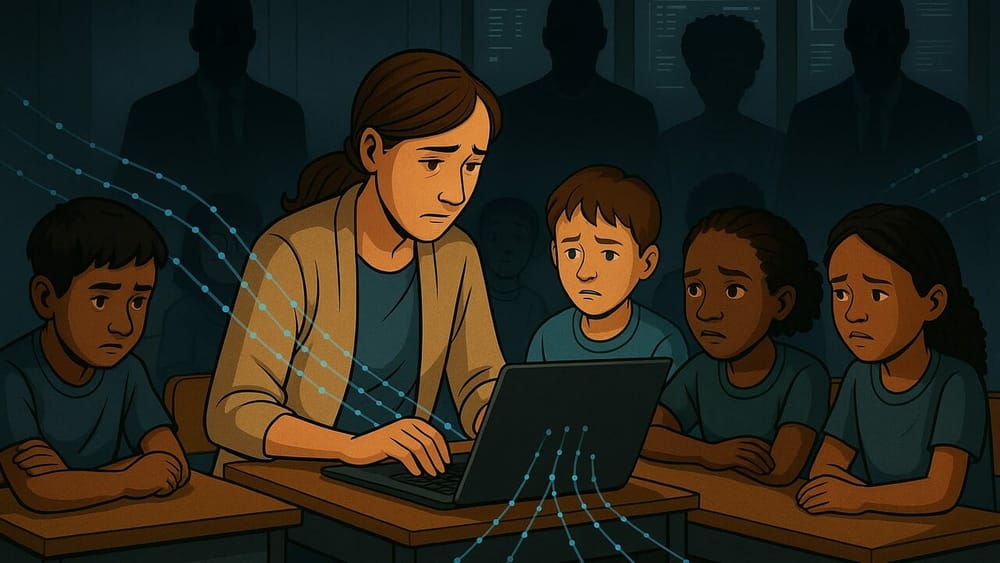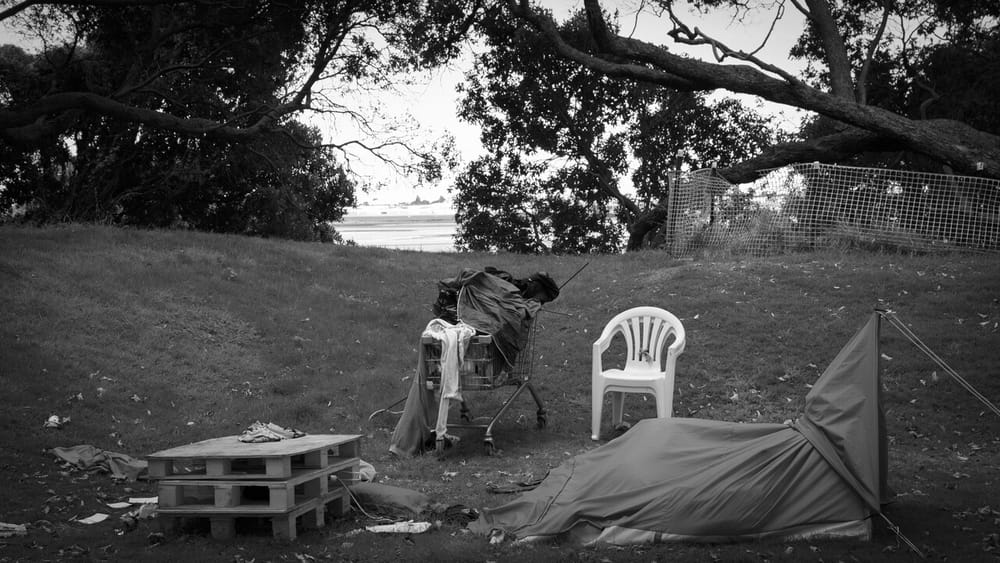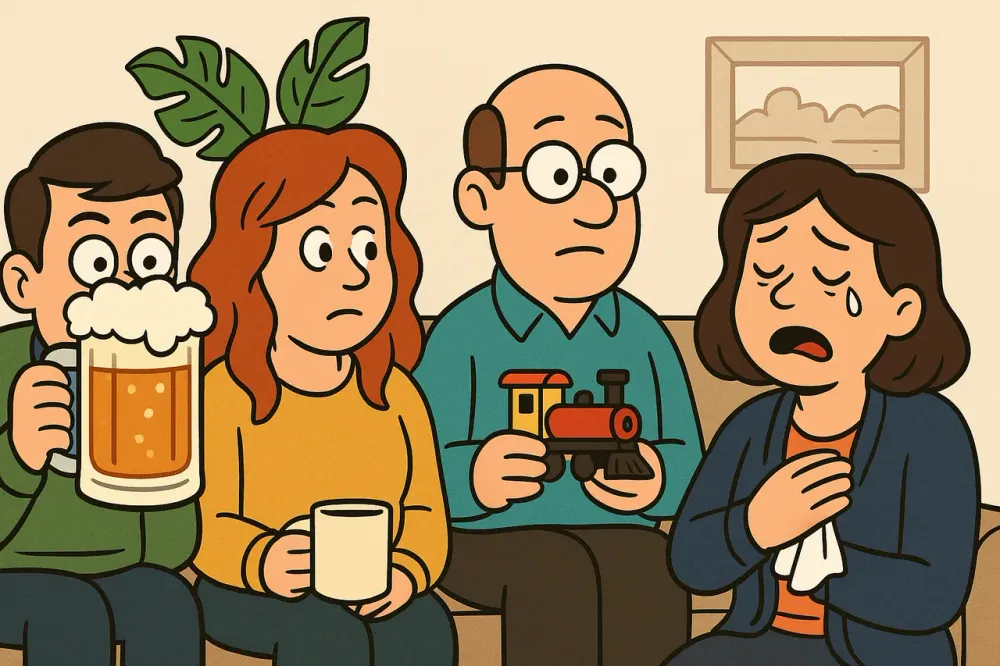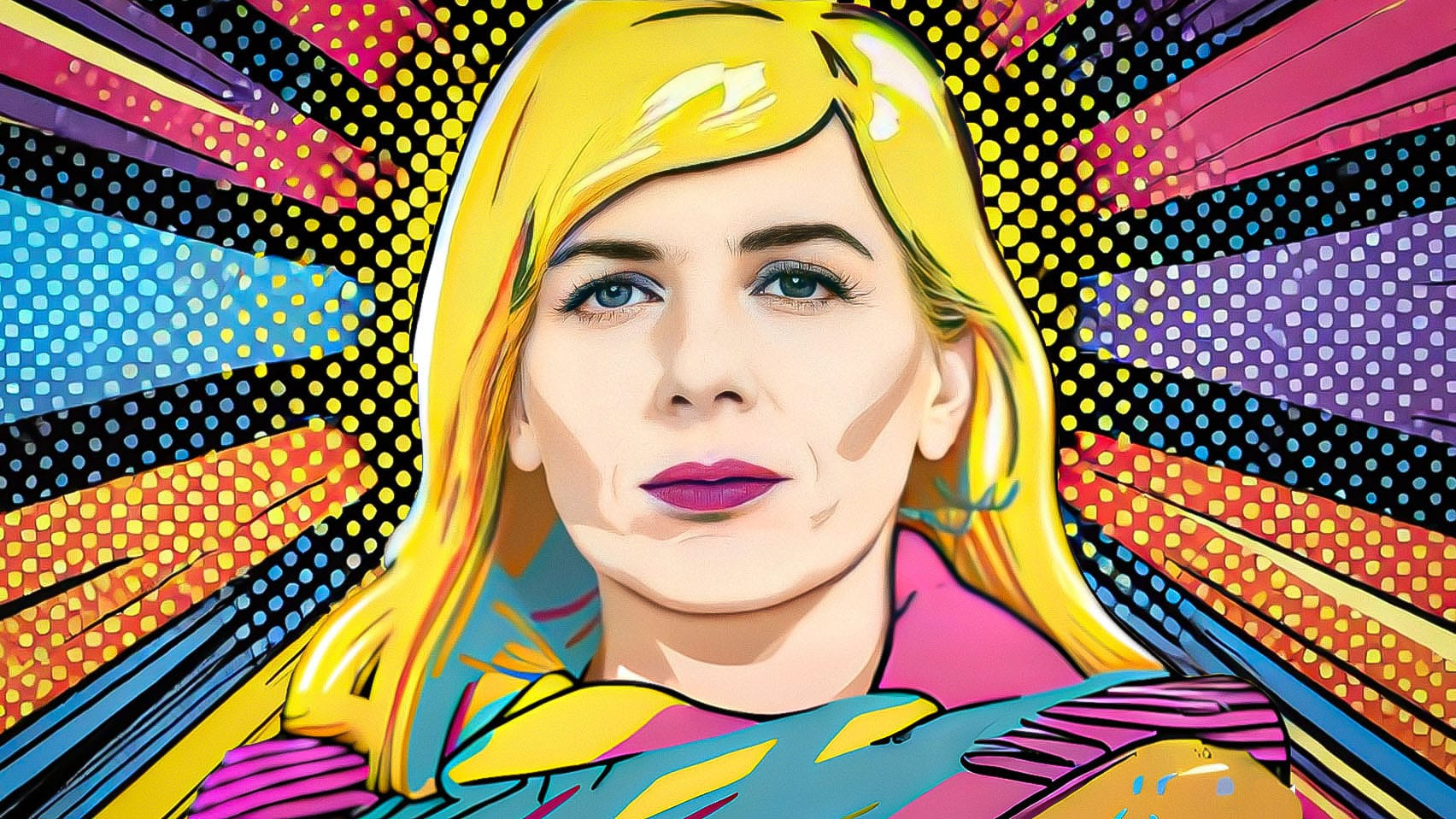
If Valerie Morse's name isn't immediately familiar, her work likely is. Whether through her thought-provoking articles for platforms like The Spinoff, her arrest during the controversial Urewera raids, or her 2007 Anzac Day flag-burning case, Morse has consistently been at the forefront of activism in New Zealand. As a founding member of Peace Action Wellington, her efforts have left an indelible mark on Aotearoa New Zealand’s social and political landscape.
Morse is a Wellington-based anarchist and activist who has dedicated decades to fighting against colonisation, war and environmental destruction. Speaking with her is nothing short of inspiring; she brings a wealth of experience and a real commitment to community-focused activism, emphasising the power of collective action in driving change.
In today’s age of information, where media can both empower and overwhelm, Morse’s work resonates. The planet’s decimation—along with the loss of entire populations, species and ecosystems—continues under the relentless forces of colonisation and power. Despite the wealth of research now available, governments often fall short in protecting the vulnerable. In Aotearoa New Zealand, the right to protest remains integral and sacred, and Morse fully embodies this right in her tireless pursuit of justice.
Kia ora Valerie and thanks for your time today. I want to start by asking: Who are you? And what is your kaupapa (guiding values)?
Who am I? My name is Valerie. I am an anarchist. I'm a gardener. I'm a librarian. I'm a writer, and I’m an activist and political organiser. I work across lots of different kinds of issues. I suppose I started very much as a kind of peace and environmental activist. I wouldn't say I'm less interested in those things [now], but I suppose that in all of the issues I work on, I'm most interested in foregrounding issues around colonisation.
Why are protests and activism important to these issues?
Protests are the manifestation of communities being organised. So protests in and of themselves—without campaigning, without organisation—are not likely to achieve very much. I think it's really important that people understand that while protests out on the streets can be visible, a lot of the work that actually goes on is stuff behind the scenes; . . . the work of building community, cohesiveness, coherence and connection to each other. Trying to build that power—that's where things really start. And so those things are important because there [are a] whole lot of things in the world that are going on, and going wrong, and those things have been going on and going wrong for a very long time. But I certainly believe that by collective action, we can fundamentally change lots of those things.
Did you have an ‘aha’ moment for activism? Did something click in you?
I don't think that I ever had an ‘aha’ moment, like a specific point in time that I thought, “Oh wow, I'm going to do activism.” I didn't come from a family of activists particularly, I didn't grow up in that kind of an environment. But I can remember very clearly when I finished university I came on a trip to New Zealand at about age twenty I guess, and learned about the kind of history of opposition to nuclear weapons . . . and I found that stuff really inspiring. I went back to the United States, [and] I went to work for Greenpeace for a few years in Washington DC, and that's where I got started.
You have been at the sharp edge of protest and backlash for years. You've been physically threatened, you've been to the Supreme Court, and you've been the object of strong community condemnation for some of your actions. Some of these actions include protesting against New Zealand troops being deployed overseas by setting alight a flag, and a protest against a weapons conference. Charges against you for both protests were eventually dropped. Has this affected your willingness to protest or your approach to activism? Have you ever just wanted to let someone else take the punishment? Don't you get tired?
I definitely get tired, and I think that activist burnout is a real thing. It is something I have experienced first-hand—and possibly didn't realise it for quite some years. For me, it was compassion fatigue—feeling so overwhelmed with all of the injustice in the world that I became numb to it for a time. I needed to reset my activism to recover from that and institute a better balance in my life.
The single most important thing for me is having a group of people who I really love and want to work with—who have my back and who have initiative and drive. I am just one piece of our many movements for change and I don't do any of this stuff on my own.
In terms of being prosecuted and punished, no one in their right mind would choose to be arrested or imprisoned. It is a degrading and disempowering experience. However, in Aotearoa, I have enormous social and economic privilege and I have a responsibility to use that to change things. Yes, it can be uncomfortable, but the vast majority of the world is experiencing suffering beyond anything I can ever imagine.
You were arrested following the Urewera raids in 2007. Can you talk through your memories of those events, and what effect this had on you?
The raids were at first absurd, and then terrifying. When I was arrested under the Terrorism Suppression Act, I thought, “Surely, you must be joking.” By the end of that day, on October 15th, 2007, I definitely knew they weren't joking as they loaded us into a police van and transported us to Arohata Women's Prison in Tawa. Over the next few weeks, it was incredibly difficult to find equilibrium. Prison is organised to keep you disrupted in your routine and life with things like snap cell inspections, continual surveillance and arbitrary application of rules. After four weeks, on the day the Solicitor-General announced that they could not proceed with terrorism charges and that we would be released, I cried with relief. What followed was then a four-year-long court battle against arms charges. During that time, the toll on my co-accused and on my own family was intense. Some people died having never had the opportunity to clear their names, others were saddled with massive legal costs. And, of course, four people were tried, convicted and punished: Tame Iti and Rangi Kemara were sentenced to prison, and Urs Signer and Emily Bailey to home detention.
How do you stay motivated to keep fighting the fight?
Opting out of political struggle, in my view, is not really an option, not an option to step back and say, “Oh actually I've got a sweet life.” We cannot afford to take that position. If we care about each other, if we care about the world that we live in and want a just place then our struggle is the struggle. It is everyone's struggle. It is everyone's role to play as part of the struggle. It's trying to figure out how to best fit into that struggle. What's the right place? And it's okay to take some mental health breaks from it. Those are the things I try to do.
I'm also really lucky. I am privileged to have a degree of housing security. That is incredibly important when trying to do this work. I'm not trying to find a place to live, moment to moment. I've had lots of friends who are in incredibly insecure housing, and that makes doing this work a lot more difficult. I think the material stuff should not be underestimated. Having your material needs met is really important. It's hard to do political organising if you don't have enough money to get by day to day.
Do you regard any one achievement as the epitome of your life's work or is it all part of one long arc?
Social struggle isn't really much about achievements for me—of course, I'm stoked when we have a great campaign, protest or blockade, but I'm mostly thrilled to have so many amazing smart, funny, compassionate, switched-on people around me. The thing I particularly love about being involved in organising right now is that I continually meet new young people who just are so incredible with their analysis and understanding. That gives me great hope and inspires me to keep going.
In your interview with Murdoch Stephens, you spoke about the best journalists understanding that to achieve balance they must give a voice to the powerless, and in contrast, how we are seeing the rise of pseudo-journalism and fake news. Can you speak about the role of social media in journalism, for good and for bad? In Palestine at the moment, there are young journalists out there reporting, while far-right groups have also found their voice within social media.
There are a lot of synergies and similarities between journalism and activism. Journalism is about holding power to account. I certainly think that there is an element of that in activism. When governments say they're going to do things or say they aren't going to do things, the community either wants those things to happen or doesn't want those things to happen. There are lots of things that sit together alongside each other in terms of activism and journalism.
One of the interesting things that's happened in journalism in the last few years is a kind of recognition and an understanding that some of those journalistic principles are very laden with values and assumptions [that] need to be made explicit. Things like the idea of balance and objectivity in a world [that] is so fundamentally unequal. Those ideas don't square very easily with holding power to account unless you are very conscientious about where your own power comes from, and where you position yourself, and how much space you're giving over to power to be able to justify their actions and their activities. There is a lot more understanding amongst journalists that actually regurgitating the narratives of power is doing a disservice to public understanding of issues, and I think that that's a real positive.
In terms of the relationship with social media, social media has allowed a kind of democratisation. It allows the opening up of a lot of spaces, which, up until that point had been essentially kept very closely gated. The gatekeepers were there in terms of mass media about who could say what, when and how. The discussion and debates going on around media coverage around Palestine right now are a great case in point because we see a lot of mainstream media outlets that are simply happy to regurgitate the political positions of the powerful, which support an illegal occupation that supports, essentially, a genocide. And what we see with social media is the ability to break out of that and to tell a story directly from Palestinians to people out there in the world, which tells them a really different story, which busts those narratives. I think it is incredibly valuable and incredibly helpful. I think many people would be feeling a great deal more desperate about the situation in Palestine were it not for the availability of other channels outside of mainstream media. Here in New Zealand, we have had protests at media outlets over the war in Palestine. People have been that frustrated by what they see as clearly biased coverage, which is frankly inadequate to the task at hand, [and] which is not interrogating power. So I think social media in that respect has been very positive.
The flip side of that, of course, is that there's a whole lot of social media stuff that has gone really bad and really wrong. And there [are] social media companies profiting from a whole lot of hate and disinformation. They are literally making money out of spreading hate speech [and] far-right ideologies. That's really problematic, and we've got a very politically mobilised far right [with] I'd say, a very politically motivated and very well-resourced influencing campaign that equates the ability to say the most horrific stuff with this idea of freedom of speech. So we are definitely battling an environment that is . . . complicated. On the political left, we have long been champions of freedom of speech, because it is mostly political people on the left, for example, [in] the Palestinian struggle, [who] have been silenced. We've now got the political right saying, “You all are trying to cancel everybody.” So those arguments, in fact, have a lot of currency with the general public, who aren't thinking very much about the nuances of those discussions. So we face an uphill battle, in terms of how we address stuff like the mass disinformation landscape that we're facing.
Do you use social media much in your activism?
Yes, I do. I use social media, not as an individual, but I use it more as a tool for political groups that I'm part of. So we have found it very useful to use things like Facebook, to use things like . . . X, use things like Instagram, and all of those kinds of tools. I guess what I would say is all of those things take time. It's always a balancing act about how much benefit flows from social media engagement versus actual engagement on the ground. I think there was a time when people effectively forgot about organising in real life, and partly, that was also given extra energy by the limitations of COVID. But I think it is really important that social media is simply just a tool for us to use. It is not political organising. It's just a tool for political organising.
Yes—like the term ‘keyboard warrior’, which refers to people whose activism is solely sharing something on their Instagram story.
Yes, and don't get me wrong, I think there is a lot of space for people to do [that] online. We have seen major corporations, for example, rolling back on political positions or advertising campaigns or whatever else, because people have gotten organised online and said, “Actually no, we're not going to put up with this.” That's fantastic, but I think the difficulty with that is . . . maybe something gets taken up that becomes viral and people get interested in that particular thing, but they don't get interested in the next thing which is just as valid, but . . . for lack of a better word, [is] not as sexy, not as interesting . . . [Maybe] it doesn't tell the story as well and so it doesn't necessarily have a consistency to it that allows it to be the kind of powerful force . . . that it could be. Maybe that will change; maybe there is some space for online political organising that looks a bit different.
Do you feel that you and your activism have been accurately represented within Aotearoa, within journalism?
By and large, I would say no. I guess what I would say is that I think there are a number of tendencies within mainstream journalism [that] tend to identify political movements simply by [the] kind of people that are out the front. I think that focus on the kind of individual is . . . part of the makeup of capitalist media. They like to have this figure to focus on. In that respect, some of the coverage I’ve had has made it as if I am something . . . distinct from the political movements that I'm part of. And that's not very revealing or helpful to people to understand how activism really works. I guess I would also say, I think there are instances where there has been coverage of me as an individual, which has also probably been a bit misleading and quite unhelpful. Many years ago, I can remember a major newspaper doing some coverage of me that was slanted in such a way that made it sound like it was unclear how I made a living, so maybe I was a bit dodgy. I was involved in, somehow, some dodgy dealing or something like that. And it was, in my view, very unfortunate reporting.
I suppose as I've come to understand the nature of media and journalism across the board, I've come to understand more how things work and the need for journalists to find some interesting angle. I heard a lovely quote the other day about journalism that I thought was very revealing, which was that news is anything that someone doesn't want you to know, all the rest is advertising. I'm certainly a subscriber to [Noam] Chomsky's view about manufacturing consent, and the way in which, generally, capitalist media tends to present the operations of society as kind of a natural, organic or necessary kind of formation. They're not interested in questioning the underlying logic that produces inequality, that produces a kind of illegitimacy of rule that we're experiencing now. They're much more interested in the daily grind. I think in the best instances, there can be plenty of opportunity for journalists to do great work in holding power to account by their own measures by their own standards. But there isn't a lot of journalism going on . . . that is trying to kind of unpick the underlying structures of injustice.
You mentioned that by representing you as an individual in these articles versus the movement, the media is not representing what activism is about. Would you prefer the media to address the movement rather than the person? Can you elaborate on that?
Well, I guess it's more that people who are seen to be in the public eye of political movements are often seen to have a kind of outsized power in those political movements. And that's not necessarily the case. Being a media spokesperson is a role within those political movements, but it isn't necessarily one that is any more or less important than any other. It's just that because those people often become known to a wider audience, they have a public face, [and] they're seen to have an outsized level of authority or power or whatever else. That's quite unhelpful because if you're working across . . . non-hierarchical organisations that don't organise themselves with someone directing things at the top, having things framed in that way is a fundamental misrepresentation of how that organising and how those organisations work.
In one of your interviews, you used the phrase “educate, agitate and organise”. With the current state of the world, people find themselves flooded with information and struggle with even the first part. How do you seek to educate yourself, and how do you advise other people to get educated?
Those words, educate, agitate, organise, . . . [come from] a famous organiser called Saul Alinsky, who was writing about political organising in the early 1970s. Social movements and movements for justice are really about an increasing level of sensitivity to oppression, and increasing awareness of the experiences of people on the margins.
We should understand [whose] voices we are listening to, and think about who those people are and where they sit. And I don't mean necessarily just individuals, but groups and people in society that are routinely not listened to. As an example, Māori women are a great example of people who are fundamentally not listened to in our society. And that's because Māori women have very little economic power, by and large. So I encourage people to think about who it is that they're listening to, and to try to listen to some of those people that aren't at the centre of power. That might be people that don't represent . . . mainstream ideas about ability, or disability, mainstream ideas about sexuality, or gender or whatever else. If we start listening to people . . . and decentring our learning, then I think it can be a really helpful way to understand what the key things are that we should be listening to in terms of justice.
I find the argument both fascinating and frustrating when far-right people who hold these views of racism and sexism feel like they aren't being represented. How do you deal with that situation?
The far-right is very good at claiming victimhood. They love to imagine and sell those ideas that they are, in fact, the ones who are being victimised. The politics of grievance is incredibly attractive to people, because it allows people who have huge amounts of privilege and huge amounts of power, essentially, a ‘get out of jail free’ card. Those politics are on the rise because political movements for justice have become well organised, have become very vocal and . . . those people with power, with privilege, feel threatened.
The difficulty is that on one hand, we don't actually want to . . . comfort the comfortable, but at the same time, the world that we live in is incredibly unequal and for the vast majority of people, the overwhelming majority of people, life could be a whole lot better, and a whole lot more just, if there were some fundamental changes. And so the attractive side of the far-right which appeals to some people, really is incredibly misleading. Because it feeds the very wealthiest, the very most powerful people in our society, and by and large, everybody else gets screwed.
You mentioned that colonisation is at the top of your list of issues in your current line of view. Would you like to elaborate more on that, and are there any other issues sort of holding space for you at the moment?
Colonisation to me, in this country, is the foremost issue of our time. Colonisation touches on every other issue in this country. It intersects, obviously, very much with the economic conditions—colonisation is an economic and social project of domination, exploitation and dispossession. All of the crises of climate, of biodiversity, of violence towards women and children, of prisons, of policing, justice, housing—[in] all of these things there is a direct and immediate relationship with colonisation. I effectively am the double recipient of colonial privilege. I grew up in the United States. My parents were children of . . . the post-war era. They were effectively baby boomers living on stolen Indigenous First Nations’ land in the United States. And then I had the privilege to come to New Zealand and live on stolen Māori land here. The basis of all wealth in this country is land stolen from Māori.
So, for me, that is . . . the first amongst equal discussions that we need to be having. That's not to say that I'm very good at practising those things. As a person with a lot of white privilege, of economic privilege, participating and trying to be an ally in those struggles is almost an endless series of missteps on my part. But I think if we are committed to dismantling structures of oppression, we have to be willing to make mistakes.
That's where my political views are at now. Fortunately, I have some comrades and colleagues who are very generous with me and with the mistakes that I make and understand that sadly, those mistakes on my behalf are kind of part and parcel of a process of that increasing sensitivity, as I said, an increasing understanding.
A lot of people are protesting and are taking part in activism for the first time with Palestine and with the new coalition government in Aotearoa-New Zealand. To finish the interview, what would you say to those people who are just beginning to enter the activism space?
It's a great time to get involved in political action and political activism. I would say keep your eyes open, keep your ears open, listen and learn. Don't be afraid to try new things, but also don't feel pressured into doing things that don't sit right with you. I would say be kind and be generous to each other.
I wanted to circle back to the social media stuff, [because] for me, I didn't come of age, politically, in the age of social media. There was no expectation . . . to be out in the digital world as a perfectly formed political being. You didn't necessarily have to have all the right political views on everything in that moment, and I guess one of the challenges of social media is that it can be a space where people feel like they have to have the perfect political views about everything. It's important that we [are] generous with each other and realise that we're all on a journey towards increasing awareness. Sometimes we get things wrong, and I think that's okay. But it's hard when there's no space to walk things back, [and] social media makes that very difficult. It makes saying ‘I'm sorry, I was wrong’, really hard. So just encourage people to be generous and to realise we're all on a learning journey.


